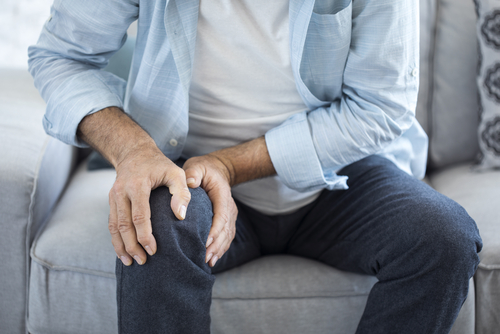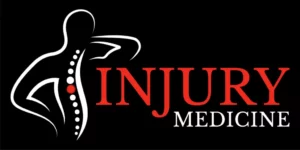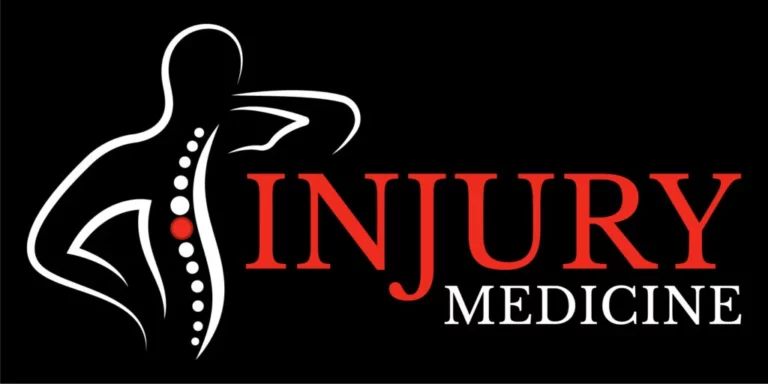If you’re looking for reliable knee injury treatment in Anderson, South Carolina, you’ve come to the right place. Knee pain can significantly affect your daily life and activities, and knee replacement surgery is a complex and lengthy recovery process.
At Injury Medicine in Anderson, SC, we specialize in providing highly effective minimally invasive and non-invasive treatments that promote knee joint healing and recovery without the need for complicated surgery. Our minimally invasive knee pain treatments offer excellent results without any harmful side effects.
We have successfully improved the lives of our patients who have suffered knee injuries with our treatment strategy that requires minimal or no recovery time. Most of our patients have expressed satisfaction with the results they have received and are glad they did not have to undergo surgery. We conduct a thorough diagnosis of your knee discomfort and tailor a personalized pain management plan to treat it.
With our highly professional knee pain specialists in Anderson, SC, you will be back on your feet and moving with your normal mobility in no time. Call Injury Medicine in Anderson, SC at 864-866-PAIN to make an appointment to treat your knee pain today.
What Are the Common Types of Knee Injuries?
There are many causes of knee pain. Some of the most common knee injuries include:
Anterior Cruciate Ligament (ACL) Injury
ACL injuries occur when the anterior cruciate ligament, which connects the thigh bone to the shinbone, is sprained or torn. These injuries are often seen in sports that involve sudden stops or changes in direction.
Medial Collateral Ligament (MCL) Injury
A tear or sprain of the medial collateral ligament (MCL) in the knee joint results in an MCL injury. The MCL is a band of tissue that runs along the inside of the knee and connects the thigh and lower leg bones. It provides stability and prevents the knee from bending inward. The injury commonly occurs due to twisting or bending of the knee.
Posterior Cruciate Ligament (PCL) Injury
The posterior cruciate ligament (PCL) is located at the back of the knee joint and is responsible for connecting the thigh bone’s top to the lower leg bone’s top. It plays a crucial role in keeping the bones in place and ensuring that the knee operates smoothly.
Meniscus Injury
A tear in the meniscus can occur when you jump or twist while participating in sports, with soccer and volleyball being the most common culprits. However, the meniscus can also tear gradually over time due to normal wear and tear.
Dislocated Patella
Patella dislocation occurs when the kneecap is forced out of its position due to a significant impact on the knee, such as a fall, collision or car accident. It is a painful condition that can take about 6 weeks to heal. This type of injury is commonly seen in sports that require sudden changes in direction or jumping, such as basketball or gymnastics. Treatment typically involves returning the kneecap to its proper position and immobilizing the knee to promote healing.
Knee Fractures
The knee cap, or patella, plays a crucial role in shielding the knee joint from injury. It acts as a shock absorber, absorbing the impact of falls or collisions. However, the patella is vulnerable to fractures when subjected to high impact force. Knee fractures can have serious consequences, making it essential to immobilize the joint to promote healing.
What Are the Most Common Causes of Knee Injuries?
Knee injuries are often the result of an external force that causes the knee to bend or twist unnaturally. Such injuries typically occur due to twisting mechanisms during falls, sports activities, or accidents, resulting in damage to the ligaments and cartilage of the knee.
High-force impacts, such as those sustained during sports or car accidents, can disrupt various parts of the knee anatomy, leading to a range of knee conditions.
Bursitis can arise due to arthritis, degenerative joint disease, overuse, gout, kneeling injuries, or infection.
What Are the Risk Factors for a Knee Injury?
- Sports– Engaging in high-impact sports like basketball, soccer, hockey, and running, as well as activities like cycling, can increase the likelihood of experiencing knee pain or injury. Sports that require sudden changes in direction or involve the use of cleats, as well as contact sports, are especially prone to knee injuries. Even high-impact exercises like cardiovascular activity or yoga can result in knee damage or pain.
- Being Overweight–Carrying excess weight puts extra stress on the knee joint, which can increase the risk of knee injuries. The additional weight places more pressure on the lower extremity joints, causing increased wear and tear, which may lead to knee pain and damage over time. It’s important to maintain a healthy weight to reduce the risk of knee injuries and to protect your overall joint health.
- Aging–Elderly individuals are at a heightened risk of knee injuries due to falls and osteoporosis. Osteoporosis is a prevalent medical condition that causes bones to become weak and fragile due to hormonal changes or a deficiency in calcium or vitamin D.
Can I Treat My Knee Injury at Home?
To some extent, yes. When you have a knee injury, you can perform various self-care steps at home. Here are some of the most crucial knee injury self-care steps:
- Heat packs and ice– Applying heat to a joint can help reduce swelling and alleviate pain, while ice is effective in reducing pain and inflammation.
- Rest–When experiencing knee issues, giving your knee enough rest is crucial to avoid exacerbating the injury.
- Elevation-elevating the injured knee can help reduce swelling by promoting better circulation and lymphatic drainage. It’s recommended to elevate the knee above the heart level for 20-30 minutes several times a day. Using a recliner or pillows to prop up the leg is a good way to achieve this position comfortably.
- Compression-Compression helps to keep fluid from building up in injured tissues.
What Are the Possible Outcomes of a Knee Injury?
A knee injury can result in short-term mobility issues, requiring the patient to rest and limit movement until the injury is fully healed. In the long term, potential effects may include reduced range of motion, chronic pain, instability, post-traumatic arthritis, and functional impairment.
What Types of Treatments Can Injury Medicine Provide for Knee Injuries?
We offer several options for knee injury treatment in Anderson, SC.
Call Us for Knee Injury Treatment in Anderson, SC!
It is essential to seek proper medical treatment for knee injuries to restore mobility and improve the quality of life. At Injury Medicine in Anderson, SC, our healthcare specialists provide advanced and minimally invasive medical treatments for knee injuries. Unlike surgery or knee replacement therapy, these treatments have minimal long-term effects on knee health and promote natural healing.
We use a personalized approach to diagnose knee pain accurately and develop a customized treatment plan tailored to your unique needs. Our team offers a range of treatments, including regenerative medicine, physical therapy, joint injections, and other non-surgical options, to promote healing and restore knee function.
If you or a loved one is suffering from knee pain, call us at 864-866-PAIN to schedule an appointment and get started on the road to recovery.


